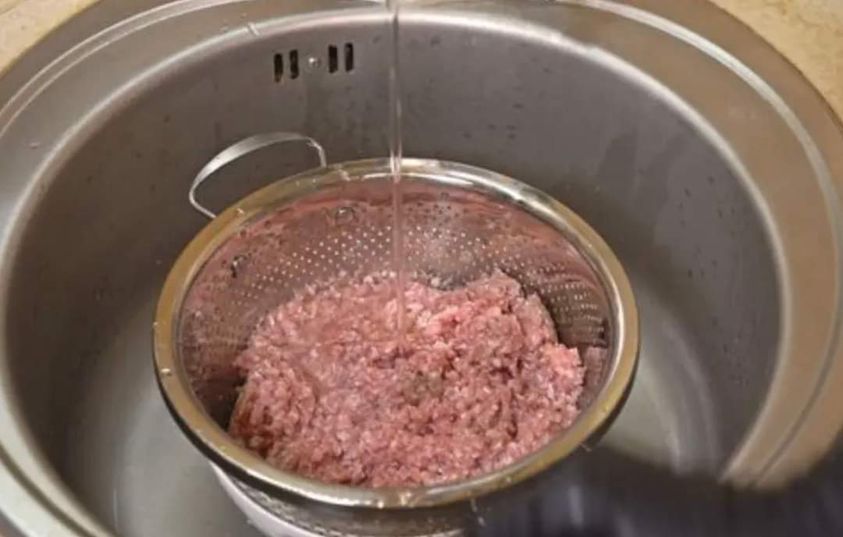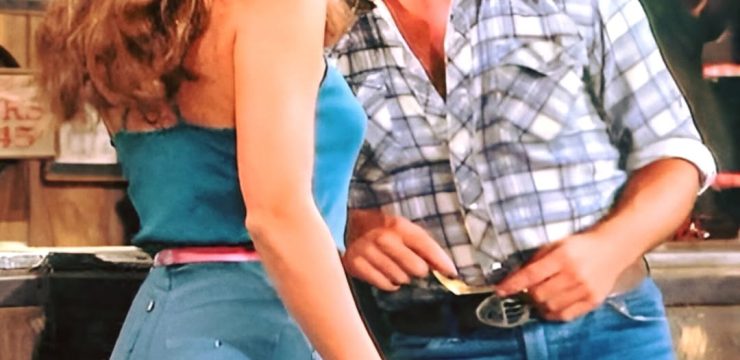When cooking ground beef, a common question often arises: should you rinse it before or after cooking? It’s a kitchen debate that divides home cooks and professionals alike. Some argue rinsing helps reduce fat, while others claim it drains the meat of flavor. Let’s explore both sides and settle this culinary conundrum once and for all.

Why Do People Rinse Ground Beef?
For many, rinsing ground beef seems like a necessary step, especially for those focused on healthier eating. But is it really effective?
The Case for Rinsing Ground Beef
Healthier Cooking: Reducing Fat Content
For the health-conscious, rinsing ground beef might sound like a great idea. The reasoning is that by rinsing off the fat after cooking, you reduce the overall fat and calorie content, creating a leaner dish. This approach is especially appealing for people who are trying to manage their fat intake or prefer lighter meals.
Avoiding Grease in Your Meal
For those who dislike greasy dishes, rinsing the beef can seem like a logical step. By washing away the excess fat, they believe they are left with a cleaner, healthier plate of food that doesn’t leave them feeling weighed down.
Why Some Experts Say No to Rinsing Ground Beef
Flavor Loss: Fat Equals Flavor
Professional chefs and seasoned home cooks alike will tell you that fat is essential to flavor. By rinsing your ground beef, you risk washing away not only the fat but also the natural juices and flavor that make the beef taste rich and savory. Fat plays a huge role in creating that juicy texture we crave in dishes like burgers, meatloaf, or tacos.
Texture Issues: Moisture Matters
Rinsing can also affect the texture of your beef. When you rinse off the fat, you’re also potentially stripping the meat of some of its moisture. This can result in dry, tough meat, which is far from ideal, especially if you’re making dishes that require a tender texture.
The Mess Factor of Rinsing Ground Beef
Kitchen Cleanup: More Trouble Than It’s Worth
Beyond the debate over flavor and fat, rinsing ground beef can lead to a bigger mess in the kitchen. The process of running water over greasy meat often results in splashes that can coat your countertops, sink, and anything else in close proximity. Not to mention, you’ll have more pots and pans to scrub after rinsing greasy beef.
Plumbing Concerns
Fat Clogs and Drain Issues
Another downside of rinsing ground beef is the potential impact on your plumbing. When hot grease hits your drain, it can quickly solidify, leading to clogs in your pipes. Over time, this can cause expensive plumbing repairs that far outweigh the small benefit of rinsing off a little fat.
The Safer Alternative to Rinsing Ground Beef
Draining Ground Beef Without Rinsing
Instead of rinsing your ground beef, consider simply draining it. After browning, tilt your pan and spoon out the excess grease, or use a colander to strain the fat. This method keeps the flavor and texture intact while still reducing the fat content. It’s a cleaner, safer, and tastier option.
Blotting with Paper Towels
For an extra step in reducing fat without compromising flavor, you can blot the cooked ground beef with paper towels. This absorbs any excess grease without the mess or flavor loss that comes with rinsing.
The Impact of Ground Beef Quality on Cooking
Choosing Leaner Ground Beef
If you’re worried about fat content, one simple solution is to start with leaner ground beef. Ground beef comes in various fat-to-lean ratios, such as 80/20, 90/10, or even 93/7. Opting for a leaner variety will naturally reduce the amount of fat you’ll have to deal with, and you won’t feel the need to rinse it at all.
Grass-Fed vs. Grain-Fed Beef
The quality of your beef can also impact the final dish. Grass-fed beef tends to be leaner than grain-fed beef, which means it will release less fat during cooking. Additionally, many people prefer the flavor of grass-fed beef, which is often described as richer and more complex.
H2: How Does Rinsing Affect Popular Ground Beef Recipes?
Rinsing for Tacos and Burritos
When making tacos or burritos, rinsing ground beef might result in drier, less flavorful meat. These dishes rely on the richness of the beef to complement the spices and toppings, so rinsing away the fat can diminish the overall taste.
Burgers: Why Fat Matters
For burgers, fat content is key. Rinsing the beef before making patties can leave you with dry, flavorless burgers that lack the juiciness we all love. Instead, try selecting a leaner cut of ground beef or simply drain the fat after cooking.
Should You Rinse Ground Beef? It’s All About Preference
Personal Preferences
At the end of the day, the decision to rinse ground beef comes down to personal preference. If reducing fat is your top priority, rinsing might help you achieve that goal. However, if flavor and texture are what you’re after, you’re better off skipping the rinse.
When to Rinse and When to Skip It
Rinsing ground beef might be appropriate in certain situations, such as when you’re cooking a dish that doesn’t rely heavily on the meat’s flavor or moisture. However, for dishes like burgers, meatballs, and pasta sauces, it’s best to keep the fat for added richness and flavor.
To Rinse or Not to Rinse Ground Beef?
The debate over rinsing ground beef continues to divide cooks, but ultimately, there’s no right or wrong answer. Whether you decide to rinse ground beef or not depends on your goals—whether it’s reducing fat or preserving flavor. If you’re aiming for a healthier meal, rinsing might make sense. But if you want to keep the full flavor and juicy texture of your beef, skipping the rinse and opting for draining is the way to go. Whichever method you choose, just make sure it fits your taste and cooking style. Happy cooking!





